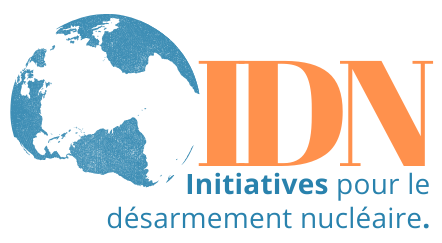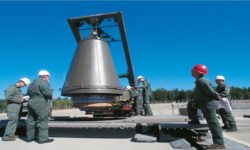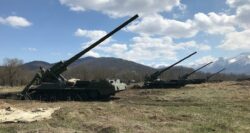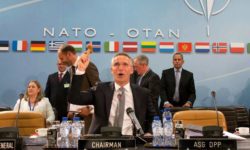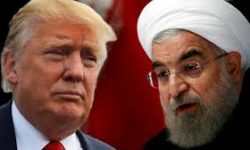Dans une tribune parue dans le Wall Street Journal, et reprise ci-dessous, le dernier dirigeant de l’URSS affirme que la dissuasion nucléaire, loin de constituer une sorte de garantie ultime de la sécurité internationale, place le monde dans une situation de danger permanent. Affirmant que les actuels dirigeants russes et américains n’ont pas évolué dans leur pensée nucléaire depuis la fin de la guerre froide, Mikhaïl Gorbatchev souligne la nécessité de tenir compte du risque d’erreur humaine, technique ou informatique dans le déclenchement d’un conflit nucléaire. N’oubliant pas le risque d’une erreur de calcul, il rappelle également que ce fut la modération et la raison des dirigeants d’alors qui évitèrent une issue catastrophique à la crise de Cuba, et non les arsenaux nucléaires en eux-mêmes. A l’heure où les efforts bilatéraux mis en place au fil de la guerre froide s’effritent lentement, saura-t-on entendre la parole de ces vétérans du contrôle des armes nucléaires ?
Emilien Houard-Vial
‘Deterrence cannot protect the world from a nuclear blunder or nuclear terrorism, » George Shultz, William Perry and Sam Nunn recently wrote. « Both become more likely when there is no sustained, meaningful dialogue between Washington and Moscow. » I agree with them about the urgent need for strategic engagement between the U.S. and Russia. I am also convinced that nuclear deterrence, instead of protecting the world, is keeping it in constant jeopardy.
I recall my heated discussions of this issue with Margaret Thatcher. We argued about many things and often found common ground, but on this question she fought to the last. Nuclear weapons, she insisted, prevented World War III.
I asked her: « Are you really comfortable sitting on a nuclear powder keg? » I showed her a diagram representing the world’s nuclear arsenals, grouped into hundreds of squares. Each square, I told her, is enough to eliminate human civilization as we know it. I was unable to persuade Margaret Thatcher. We hear the same arguments today, including in the U.S. and Russia.
Yet nuclear weapons are like a rifle hanging on the wall in a play written and staged by a person unknown. We do not know the playwright’s intent. Nuclear weapons could go off because of a technical failure, human error or computer error. The last alarms me the most. Computer systems are now used everywhere. And how many times have computers and electronics failed—in aviation, in industry, in various control systems?
Nuclear weapons might also be launched in response to a false alarm. If the flight time of the missiles is reduced, leaving less time to detect a false alarm, the probability of a mistaken retaliatory launch is bound to rise.
Nuclear weapons could fall into the hands of terrorists. And who knows what other « surprises » these weapons have in store for us?
Those who believe nuclear weapons can save the world from war should recall the 1962 Cuban Missile Crisis. A dispute over the placement of Soviet nuclear weapons put the world on the brink of war. Recently published documents show how close the world came to the fateful line. It was not nuclear weapons that saved the world, but the sobering up of the two countries’ leaders, John F. Kennedy and Nikita Khrushchev. I am sure they thought long and hard, then and afterward, and their perception of nuclear weapons changed a great deal.
What’s more, they reached agreement on ending nuclear tests in the atmosphere, in outer space and under water, thus slowing the qualitative weapons race as well as protecting the air from the deadly products of nuclear explosions.
The opportunity to continue progress in nuclear arms control was then squandered. The military-industrial complex won out over common sense. Only much later, toward the end of the 1980s, were we able to stop the arms race. Today, the U.S. and Russia are at a perilous crossroads. They must stop and think. The veterans of the Cold War have spoken. It is now up to our nations’ leaders to act.
Mr. Gorbachev is former president of the Soviet Union.
